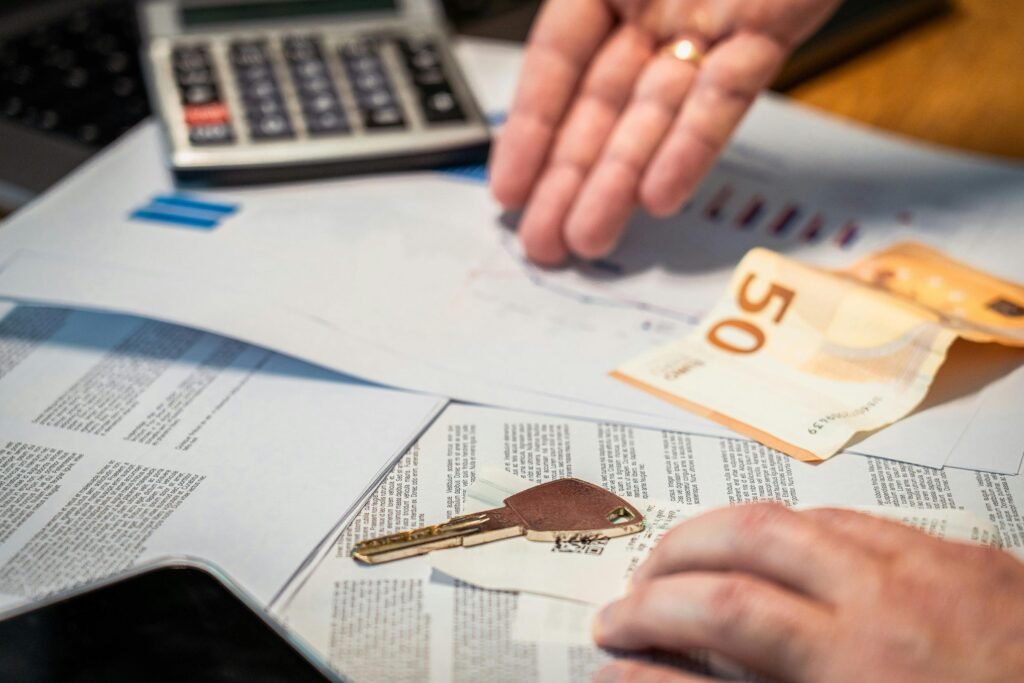Introduction
Huge debts are one of the primary financial burdens that individuals face and can hamper the saving and investment processes of an individual, which in turn reduces the potential to achieve such financial goals. Be it one’s credit card debt, student loans, medical bills, or mortgages, dealing with debt always commands a strategy. The debt repayment budgeting plays a great role in giving opportunities to people and families to plan their finances effectively by putting priority on debts and making payments regularly. This article gives the laboured strategies and tips for effective debt repayment budgeting, and it guides you toward having a debt-free life with financial stability and freedom.
Debts Repayment Budgeting
A debt repayment budget is planning your money in a way that caters to repaying the debts while also taking care of necessities and savings. A well-constructed budget helps to:
- Categorize Your Debts: Which debt should be repaid first— analyzing interest rates versus balances.
- Exercise control over your expenses: Provision for the needs but have more money to repay debt and
- Guides on ways to pay off low-interest debt and save a considerable sum of money by repaying high-interest debt quickly.
- Be debt-free and free up resources for savings, investments, and other goals, and then, pay off all debts.
Key Elements of a Debt Repayment Budget
Making a debt repayment budget has some key elements, and knowing about these will make the budget a realistic and workable financial plan. These are as follows:
1. Listing Debts
The very starting point of all the activities involved in making a debt repayment budget is to list down all the existing debts. For every debt, list:
- Creditor: Name of the lender or creditor
- Balance: The total amount owed
- Interest Rate: The APR or interest rate
- Minimum Payment: The least monthly amount payable
This gives you a clear outline of all your debt, and you can plan your payments accordingly.
2. Find your income
Know the total amount of money you make in one month. The following are some of the sources of income:
- Salary or Wages: These are the normal full-time or part-time work earnings.
- Freelance or Side Income: Any freelance work, side gigs, or other part-time jobs taken on to generate more income.
- Investment Income: Dividends, interest or rental income related to such investments.
- Other Income: Alimony, child support or any other regular income stream.
Your total monthly income will guide you into having realistic spending and debt repayment goals.
3. Monitor Your Expenses Monthly
You can use this information to track for a month what you are spending that is not going to reduce your debt. You can put the money towards the loan rather than spending if you categorize your expenditures in terms of:
- Fixed Expenses. Rent or mortgage, utilities, insurance, and other recurring bills.
- Variable Expenses: Groceries, transportation, entertainment, eating out, and other discretionary spending.
- Irregular Expenses. Annual subscriptions, car maintenance, medical expenses, and other periodic costs.
A budgeting app or spreadsheet can help you align all these and help you look at your spending.
4. Places to Reduce Spending
Consider the various areas in which you can reduce expenses and apply the following tactics –
- Cut down on eating out – Wash your utensils rather than eating out or ordering food.
- Curb subscriptions- Annul all the illogical, unused, or unnecessary subscriptions and memberships.
- Shopping Smart: Use coupons, buy in bulk, enjoy sales and discounts.
- Cut Entertainment Costs: Free or low-cost entertainment options are community events and outdoor activities.
You can redirect from these adjustments the monies you save toward your debt repayment.
Attacking Debt – Paying Debt Back Smartly
After you know what you owe and to whom, how much your income is and what your outgoings are, you can try some strategies for repayment of debt. Some strategies that can be quite helpful in repaying your debts are:
1. Snowball Method :
In the debt snowball method, you knock out the smallest of your debts first while you are only making minimum payments on all your larger debts. After the smallest debt has been paid, move to the next smallest, etc. This method gives a psychological boost to the process of debt elimination by eradicating more minor debts in a short period of time.
- Steps for the Debt Snowball Method:
- Make a list of your debts from smallest to largest balance.
- Apply extra money to the smallest debt, but make at least minimum payments on others.
- After your smallest debt has been paid off, move on to the next smallest debt.
- Continue this until all debts are paid off.
2. The Debt Avalanche Method
The snowball method of debt repayment is one in which you repay your debts from smallest to the largest ones.In this way, you will be able to eliminate debts one after the other. This method is said to be motivating because you observe progress with all the debts you have. However, it can be more expensive because as some debts are paid off, one is left with fewer options and less available to them in terms of high-interest debts.
- Outline of the Debt Avalanche Method:
- List your debts from highest to lowest interest rate.
- Put more money towards the highest interest rate debt, but continue paying the minimum on the others.
- After the highest rate debt is paid off, move to the next highest rate debt.
- Keep doing it until all the debt is gone.
3. Debt Consolidation
Debt Consolidation: This option is taken when multiple debts are consolidated into one, single loan that charges a fixed interest rate and requires payment of a fixed amount monthly. In that way, payment of your debts is made easy, and in most cases the rates may even be lowered. Some possible ones include:
- You take a personal loan to roll them all into one payment. New interest rate plus one monthly payment.
- Balance Transfer Credit Card: If you have a number of credit cards with a large interest rate, this may be the right opportunity to transfer the balances onto a card with a lower interest rate or even better, a 0% introductory APR. It saves you from a huge amount of interest and helps pay off debt quickly.
- Home Equity Loan or Line of Credit: You may consolidate high-interest debts with a home equity loan or line of credit, provided you are an owner of a home.
4. Ways to Increase Your Income
Increasing your income will give you more money that you can throw towards your debt. Here are some suggestions depending on what can work for you:
- Side Gigs and Freelancing: Make some extra money through side gigs/freelancing.
- Part-time Jobs: Find a part-time job besides your regular job.
- Sell unused things: Sell those things that are just occupying a space around you that you do not desire any longer, like clothes, old electronics, and furniture for some extra money.
Use the extra money to put toward extra debt payments, which will keep you on supercharge in the repayment process.
Tips to Help You Stick to the Debt Repayment Budget
To follow a budget of debt repayment, one surely needs to be disciplined and dedicated. Here are a few tips that can help you focus:
1. Set Realistic Goals
Set achievable and realistic goals to pay your debts. You can break your main goal into manageable bits, like paying off certain debts within a specific period of time. When you achieve any of the broken goals, celebrate your achievement.
2. Automate Payments
Automated debt payments remove the issue of missing payments as they help in maintaining consistency. Automate the minimums and extra into future accounts towards the highest-priority debts.
3. Track Your Progress
Regular monitoring of progress keeps one accountable and motivated. Use a repayment APP or a spreadsheet to track what you are paying out monthly to your debts and track any balances still due. Include any changes to the budget so you remain on target with your goals.
4. Stop Keeping up with Accrued Debts
Don’t take in any more new debt while focusing your energy on repayment. Consider using credit cards less and avoiding finance for large purchases unless there is no other option. Concentrate on how to live within one’s means and use cash or debit for daily expenses.
5. Building an Emergency Fund
An emergency fund will help you not to use or max out your credit cards or take out loans when unexpected expenses occur. You are encouraged to save at least three to six month’s living expenses in an account that is easily accessible. An emergency fund will relieve you of any financial stress you may be trying to get rid of while working toward being free from debt.
Managing Financial Stress During Debt Repayment
Repaying debt can be stressful; managing the stress will help in keeping you focused and motivated. Here are some tips to help you manage financial stress:
1. Be positive and focused
In your attitude towards your current situation, being on the positive side will help in keeping you motivated and focused on your goals. Reward yourself for small successes, and remind yourself of the benefits of being debt-free. Visualize what your life would be like free of debt and the financial freedom that will bestow upon you.
2. Get Support
Ask friends, family, or a financial advisor to support, encourage you, and put you in line when it comes to motivating you. Join any online communities or support groups around debt repayment to get a chance to share experiences and lessons learned. Have a supportive environment filled with people who keep you motivated and remain determined to meet your goals.
3. Self Care
Put much attention to personal care in handling stress and maintaining well-being. Try doing things that relax and energize you, such as exercise, meditation, or simply indulging in a hobby. Taking care of your physical and mental health will help you view the situation more positively and be more resilient.
4. Breaking down the process
It’s probably more manageable doing the whole of the debt repayment process one step at a time. Indeed, be proud of any success achieved at every step. This will greatly help be motivated and be a step closer to the goal.
Summary
Debt Repayment budgeting is a critical process in achieving financial freedom and stability in life. Listing all your debts, managing your income and expenses, and implementing practical plans to repay the debts will put you in control of your financial situation and point you in the direction of a debt-free life. Remember to set realistic goals, automate payments, and borrow no new debt. Dealing with financial anxiety and keeping positive will assist you in being motivated and focused on your journey to financial freedom. Begin today and take the first step towards a debt-free and secure future.




